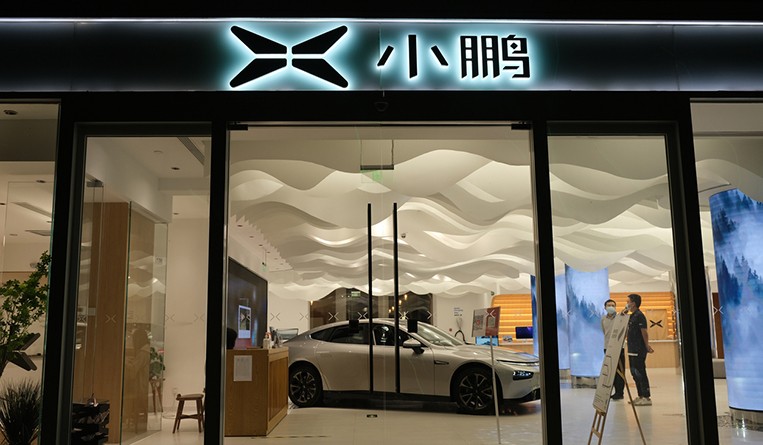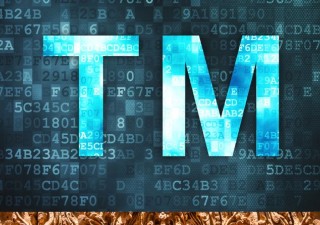In order to create a first-class business environment, actively build a national unified market system and rules, coordinate[AL1] vitality and order, better regulate enterprise name registration management, protect the legitimate rights and interests of enterprises and maintain fair competition market order, the State Administration of Market Supervision recently promulgated Order No. 82, revising and introducing the Implementation Measures for the Administration of Enterprise Name Registration Provisions (hereinafter referred to as the measures), which will come into force on October 1, 2023.
Background and necessity
First, the revision of the Implementing Regulation is a detailed implementation of administrative regulations, which will help clarify the responsibilities of authority and procedures of the registration and management of enterprise names, refine and improve the registration and management norms of enterprise names, implement the main responsibilities of enterprises, and improve the adjudication mechanism of enterprise name disputes.
The second is to solve the outstanding problems of enterprise name registration management effective measures. Enterprise name registration is very practical. In recent years, some enterprises have deliberately violated the law to apply for and use names, disrupting market order and causing great concern, such as the use of language related to the national strategy, affecting and damaging the reputation and credibility of the country. Some deliberately declare the use of words harming national security and social and public interests. Some deliberately use names similar to famous brands, some deliberately copy the name and abbreviation of central state-owned enterprises, etc., and some infringe on the legitimate rights and interests of well-known units. In response to these circumstances, the community has reacted strongly, and there is an urgent need to revise the Implementing Regulation.
The third is the inevitable requirement of unifying the rules of the market access system and optimizing the business environment. The enterprise name, which is the necessary condition for the establishment of the enterprise, carries the enterprise’s reputation and brand image and is the intangible assets of the enterprise. The revised measures will help clarify the powers of enterprise registration authorities at all levels, improve the rules and procedures for banning and restricting the use of names, and improve the procedures for correcting illegal names and adjudicating disputes.
Major changes
First, the revised measures will optimize the independent application of enterprise names. It is clear that the registration and administration of enterprise names shall follow the principles of law and compliance, unified standards, openness and transparency, convenience and efficiency. The revised measures will also:
- Refine and improve the standard requirements of the components of the enterprise name.
- Clarify and standardize the relevant requirements of the enterprise name that does not contain the name of the administrative division, does not contain the industry or business characteristics, and will better serve and guide the enterprise name declaration.
- Strengthen information support services, stipulate that the enterprise name declaration system automatically compares the name submitted by the applicant, and makes forbidden and restricted use instructions or risk tips according to the prohibited and restricted use rules of the enterprise name and the same and similar comparison rules.
Second, the revised measures will standardize the management order of enterprise name registration. The application and use of enterprise names shall adhere to good faith, respect prior legal rights, and avoid confusion. In order to strictly prevent and stop illegal acts such as fake state-owned enterprises and central enterprises, the Implementing Regulation strictly prohibits the use of words related to major national strategic policies, which could make the public mistakenly believe that there is a relationship with state investment, government credit, etc. It also prohibits one from submitting false materials or taking other fraudulent means to apply for the enterprise name independently, or deliberately apply for an enterprise name similar to the name of others, including abbreviations, brand names, etc., that have a certain influence in the same industry. Names for an enterprise with words including “China”, “Zhonghua”, “central” and others, can only be undertaken in accordance with the provisions of laws and regulations and will be strictly audited.
Third, the revised measures will strengthen the use of enterprise names and supervision and management. The use of names shall comply with laws and regulations, and shall not infringe upon the prior legitimate rights and interests of others by imitation or confusion. The procedures for the registration authority to correct the name of an enterprise shall be refined and perfected, and will adhere to the principle of equal punishment and the combination of punishment and corrective training programmes. They will distinguish between subjective faults, circumstances and consequences for violations of the declaration and use of enterprise names, and set different legal responsibilities.
Fourth, the revised measures will improve the administrative adjudication mechanism of name disputes. They will add a special chapter on the adjudication of enterprise name disputes, lay out the specific rules and procedures of enterprise name disputes, and improve the relief measures for the legitimate rights and interests of enterprise names. It is clear that the enterprise registration authority shall comprehensively consider relevant factors in accordance with the law when reviewing a dispute over the name of an enterprise. Authorities will adhere to the principle of efficiency and convenience for the people, make it clear that the facts are clear, the dispute is not controversial, and the case is simple, and the summary ruling procedure can be applied in accordance with the relevant provisions.
What business entities?
Article 2 of the Implementing Regulation makes it clear that the regulation applies to enterprises that need to be registered within the territory of China according to law, including companies, non-corporate enterprise legal persons, partnerships, sole proprietorship enterprises and branches of the above-mentioned enterprises, as well as branches of foreign companies, among them, non-corporate enterprise legal persons include enterprises owned by the whole people, enterprises under collective ownership, and affiliated enterprises. A branch of a foreign company refers to a company established outside China in accordance with foreign laws, but a branch established within China, which does not have the status of a Chinese legal person.
What cannot be accepted ?
First, it is not allowed to use words related to major national strategic policies, so that the public will mistakenly believe that there is a relationship with state investment and government credit. Such as the use of “One Belt and One Road”, “west-to-east transmission of electricity” and other national strategies related to the text, causing public misunderstanding and confusion.
Second, it is forbidden to use misleading words such as “national level”, “highest level” and “best”. The use of these words in the name of the enterprise makes it easy for the public to mistake that the enterprise has a national or leading position in the relevant field.
Third, the name of the enterprise shall not use the same or similar words as the name of others (including abbreviations, fonts, etc.) that have a certain influence in the same industry. In practice, many applicants deliberately use names similar to famous brands, imitating the names of enterprises and institutions with certain visibility, so that the public mistakenly believes that the two are related or even mistaken for the same enterprise.
Fourth, the name of the enterprise shall not use words that are explicitly or implicitly non-profit organizations. An enterprise that engages in business activities for the purpose of making profits shall be registered with the enterprise registration authority; non-profit organizations shall be registered and administered by their respective competent authorities. If the name of the enterprise is explicitly or implicitly written as a non-profit organization, it is easy to be confused with other entities and cause misunderstanding by the public. For example, when words like “design institute”, “survey institute”, “engineering institute”, “research centre” or other generally public institutions are used, the enterprise registration authority should use increased research and judgment, and under normal circumstances should not be used for the above words in the name of the enterprise.
What actions can be taken ?
The first step to take when one of the above principles is violated is to make a complaint before the enterprise registration authority for the settlement of enterprise name disputes. According to Article 21 of the Provisions on the Administration of Registration of Enterprise Names and Article 34 of the Implementing Regulation, where an enterprise considers that another enterprise name infringes on the legitimate rights and interests of its own enterprise name, it may request the enterprise registration authority that handles the registration of the suspected infringing enterprise to review the registered enterprise name. After accepting the application, the enterprise registration authority may conduct mediation. If mediation fails, the enterprise registration authority shall make an administrative ruling within three months from the date of acceptance.
The second is to apply to the administrative organ to investigate and punish the unfair competition acts of the infringing enterprises. According to Article 22 of the Provisions on the Administration of Registration of Enterprise Names and Article 49 of the Measures for Implementation, where an enterprise considers that other enterprises use their enterprise names to implement acts such as unfair competition, it shall report to the market supervision department and provide relevant materials. The market supervision department shall handle the matter in accordance with relevant laws and regulations such as anti-unfair competition.
The third is to file a lawsuit with the People’s Court. The Civil Code has relevant provisions on the protection of enterprise names. As the right of personality, the victim has the right to request the perpetrator to bear civil liability in accordance with the provisions of the Civil Code and other laws when the enterprise name is infringed. Article 21 of the Provisions on the Administration of Registration of Enterprise Names provides that where an enterprise considers that another enterprise name infringes upon the legitimate rights and interests of its own enterprise name, it may bring a suit in a people's court.
What are the dispute rules?
Articles 35 to 47 of the measures stipulate the level of jurisdiction, working principles, process time limits, considerations, parties’ submission of materials, mediation of name disputes, adjudication procedures and relief channels.
Article 35 specifies that the enterprise registration authority is responsible for the adjudication of enterprise name disputes; that is, enterprise name disputes shall be handled by the enterprise registration authority for the suspected infringing enterprise registration.
Article 43 specifies the follow-up work to make a determination or ruling, and before an enterprise handles the registration of name change, the enterprise registration authority shall replace its enterprise name with a unified social credit code in the national enterprise credit information publicity system and electronic business license. Where an enterprise fails to register changes within the time limit, the enterprise registration authority shall include it in the list of abnormal operations. After the completion of the change registration, the enterprise may apply to the enterprise registration authority for removal from the abnormal business list in accordance with law.
Article 47 specifies the remedies for adjudication of disputes over enterprise names. The administrative ruling of the enterprise registration authority on the name dispute is a legal conclusion made by the authority to the civil dispute that has already occurred. If a party is not satisfied with the award on a dispute over an enterprise name, it may apply for administrative reconsideration or bring a lawsuit in a People’s Court in accordance with the law.
In order to create a first-class business environment, actively build a national unified market system and rules, coordinate[AL1] vitality and order, better regulate enterprise name registration management, protect the legitimate rights and interests of enterprises and maintain fair competition market order, the State Administration of Market Supervision recently promulgated Order No. 82, revising and introducing the Implementation Measures for the Administration of Enterprise Name Registration Provisions (hereinafter referred to as the measures), which will come into force on October 1, 2023.
Background and necessity
First, the revision of the Implementing Regulation is a detailed implementation of administrative regulations, which will help clarify the responsibilities of authority and procedures of the registration and management of enterprise names, refine and improve the registration and management norms of enterprise names, implement the main responsibilities of enterprises, and improve the adjudication mechanism of enterprise name disputes.
The second is to solve the outstanding problems of enterprise name registration management effective measures. Enterprise name registration is very practical. In recent years, some enterprises have deliberately violated the law to apply for and use names, disrupting market order and causing great concern, such as the use of language related to the national strategy, affecting and damaging the reputation and credibility of the country. Some deliberately declare the use of words harming national security and social and public interests. Some deliberately use names similar to famous brands, some deliberately copy the name and abbreviation of central state-owned enterprises, etc., and some infringe on the legitimate rights and interests of well-known units. In response to these circumstances, the community has reacted strongly, and there is an urgent need to revise the Implementing Regulation.
The third is the inevitable requirement of unifying the rules of the market access system and optimizing the business environment. The enterprise name, which is the necessary condition for the establishment of the enterprise, carries the enterprise’s reputation and brand image and is the intangible assets of the enterprise. The revised measures will help clarify the powers of enterprise registration authorities at all levels, improve the rules and procedures for banning and restricting the use of names, and improve the procedures for correcting illegal names and adjudicating disputes.
Major changes
First, the revised measures will optimize the independent application of enterprise names. It is clear that the registration and administration of enterprise names shall follow the principles of law and compliance, unified standards, openness and transparency, convenience and efficiency. The revised measures will also:
- Refine and improve the standard requirements of the components of the enterprise name.
- Clarify and standardize the relevant requirements of the enterprise name that does not contain the name of the administrative division, does not contain the industry or business characteristics, and will better serve and guide the enterprise name declaration.
- Strengthen information support services, stipulate that the enterprise name declaration system automatically compares the name submitted by the applicant, and makes forbidden and restricted use instructions or risk tips according to the prohibited and restricted use rules of the enterprise name and the same and similar comparison rules.
Second, the revised measures will standardize the management order of enterprise name registration. The application and use of enterprise names shall adhere to good faith, respect prior legal rights, and avoid confusion. In order to strictly prevent and stop illegal acts such as fake state-owned enterprises and central enterprises, the Implementing Regulation strictly prohibits the use of words related to major national strategic policies, which could make the public mistakenly believe that there is a relationship with state investment, government credit, etc. It also prohibits one from submitting false materials or taking other fraudulent means to apply for the enterprise name independently, or deliberately apply for an enterprise name similar to the name of others, including abbreviations, brand names, etc., that have a certain influence in the same industry. Names for an enterprise with words including “China”, “Zhonghua”, “central” and others, can only be undertaken in accordance with the provisions of laws and regulations and will be strictly audited.
Third, the revised measures will strengthen the use of enterprise names and supervision and management. The use of names shall comply with laws and regulations, and shall not infringe upon the prior legitimate rights and interests of others by imitation or confusion. The procedures for the registration authority to correct the name of an enterprise shall be refined and perfected, and will adhere to the principle of equal punishment and the combination of punishment and corrective training programmes. They will distinguish between subjective faults, circumstances and consequences for violations of the declaration and use of enterprise names, and set different legal responsibilities.
Fourth, the revised measures will improve the administrative adjudication mechanism of name disputes. They will add a special chapter on the adjudication of enterprise name disputes, lay out the specific rules and procedures of enterprise name disputes, and improve the relief measures for the legitimate rights and interests of enterprise names. It is clear that the enterprise registration authority shall comprehensively consider relevant factors in accordance with the law when reviewing a dispute over the name of an enterprise. Authorities will adhere to the principle of efficiency and convenience for the people, make it clear that the facts are clear, the dispute is not controversial, and the case is simple, and the summary ruling procedure can be applied in accordance with the relevant provisions.
What business entities?
Article 2 of the Implementing Regulation makes it clear that the regulation applies to enterprises that need to be registered within the territory of China according to law, including companies, non-corporate enterprise legal persons, partnerships, sole proprietorship enterprises and branches of the above-mentioned enterprises, as well as branches of foreign companies, among them, non-corporate enterprise legal persons include enterprises owned by the whole people, enterprises under collective ownership, and affiliated enterprises. A branch of a foreign company refers to a company established outside China in accordance with foreign laws, but a branch established within China, which does not have the status of a Chinese legal person.
What cannot be accepted ?
First, it is not allowed to use words related to major national strategic policies, so that the public will mistakenly believe that there is a relationship with state investment and government credit. Such as the use of “One Belt and One Road”, “west-to-east transmission of electricity” and other national strategies related to the text, causing public misunderstanding and confusion.
Second, it is forbidden to use misleading words such as “national level”, “highest level” and “best”. The use of these words in the name of the enterprise makes it easy for the public to mistake that the enterprise has a national or leading position in the relevant field.
Third, the name of the enterprise shall not use the same or similar words as the name of others (including abbreviations, fonts, etc.) that have a certain influence in the same industry. In practice, many applicants deliberately use names similar to famous brands, imitating the names of enterprises and institutions with certain visibility, so that the public mistakenly believes that the two are related or even mistaken for the same enterprise.
Fourth, the name of the enterprise shall not use words that are explicitly or implicitly non-profit organizations. An enterprise that engages in business activities for the purpose of making profits shall be registered with the enterprise registration authority; non-profit organizations shall be registered and administered by their respective competent authorities. If the name of the enterprise is explicitly or implicitly written as a non-profit organization, it is easy to be confused with other entities and cause misunderstanding by the public. For example, when words like “design institute”, “survey institute”, “engineering institute”, “research centre” or other generally public institutions are used, the enterprise registration authority should use increased research and judgment, and under normal circumstances should not be used for the above words in the name of the enterprise.
What actions can be taken ?
The first step to take when one of the above principles is violated is to make a complaint before the enterprise registration authority for the settlement of enterprise name disputes. According to Article 21 of the Provisions on the Administration of Registration of Enterprise Names and Article 34 of the Implementing Regulation, where an enterprise considers that another enterprise name infringes on the legitimate rights and interests of its own enterprise name, it may request the enterprise registration authority that handles the registration of the suspected infringing enterprise to review the registered enterprise name. After accepting the application, the enterprise registration authority may conduct mediation. If mediation fails, the enterprise registration authority shall make an administrative ruling within three months from the date of acceptance.
The second is to apply to the administrative organ to investigate and punish the unfair competition acts of the infringing enterprises. According to Article 22 of the Provisions on the Administration of Registration of Enterprise Names and Article 49 of the Measures for Implementation, where an enterprise considers that other enterprises use their enterprise names to implement acts such as unfair competition, it shall report to the market supervision department and provide relevant materials. The market supervision department shall handle the matter in accordance with relevant laws and regulations such as anti-unfair competition.
The third is to file a lawsuit with the People’s Court. The Civil Code has relevant provisions on the protection of enterprise names. As the right of personality, the victim has the right to request the perpetrator to bear civil liability in accordance with the provisions of the Civil Code and other laws when the enterprise name is infringed. Article 21 of the Provisions on the Administration of Registration of Enterprise Names provides that where an enterprise considers that another enterprise name infringes upon the legitimate rights and interests of its own enterprise name, it may bring a suit in a people's court.
What are the dispute rules?
Articles 35 to 47 of the measures stipulate the level of jurisdiction, working principles, process time limits, considerations, parties’ submission of materials, mediation of name disputes, adjudication procedures and relief channels.
Article 35 specifies that the enterprise registration authority is responsible for the adjudication of enterprise name disputes; that is, enterprise name disputes shall be handled by the enterprise registration authority for the suspected infringing enterprise registration.
Article 43 specifies the follow-up work to make a determination or ruling, and before an enterprise handles the registration of name change, the enterprise registration authority shall replace its enterprise name with a unified social credit code in the national enterprise credit information publicity system and electronic business license. Where an enterprise fails to register changes within the time limit, the enterprise registration authority shall include it in the list of abnormal operations. After the completion of the change registration, the enterprise may apply to the enterprise registration authority for removal from the abnormal business list in accordance with law.
Article 47 specifies the remedies for adjudication of disputes over enterprise names. The administrative ruling of the enterprise registration authority on the name dispute is a legal conclusion made by the authority to the civil dispute that has already occurred. If a party is not satisfied with the award on a dispute over an enterprise name, it may apply for administrative reconsideration or bring a lawsuit in a People’s Court in accordance with the law.









